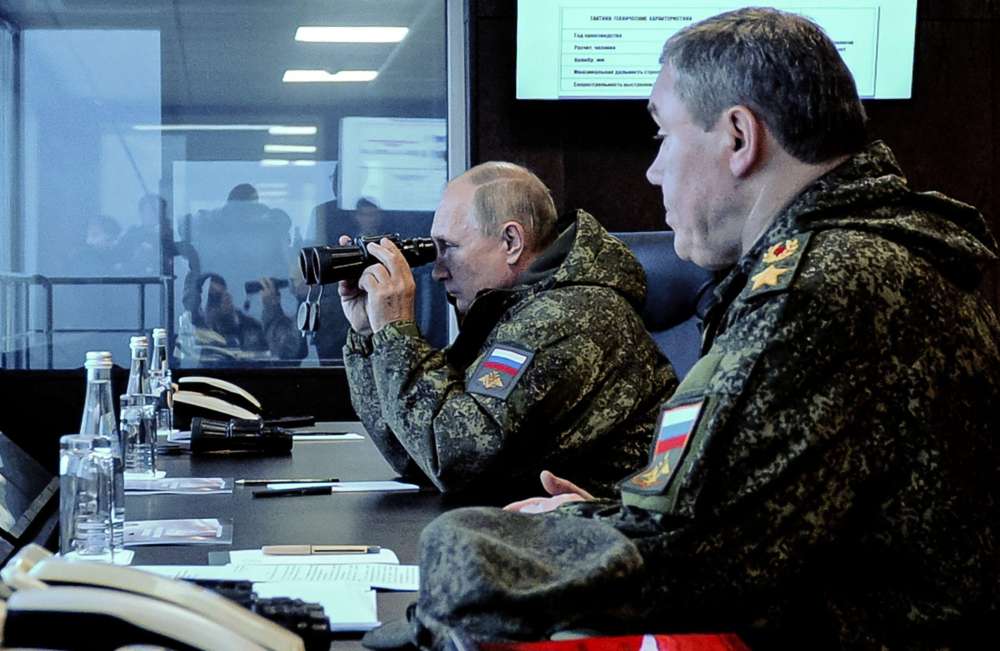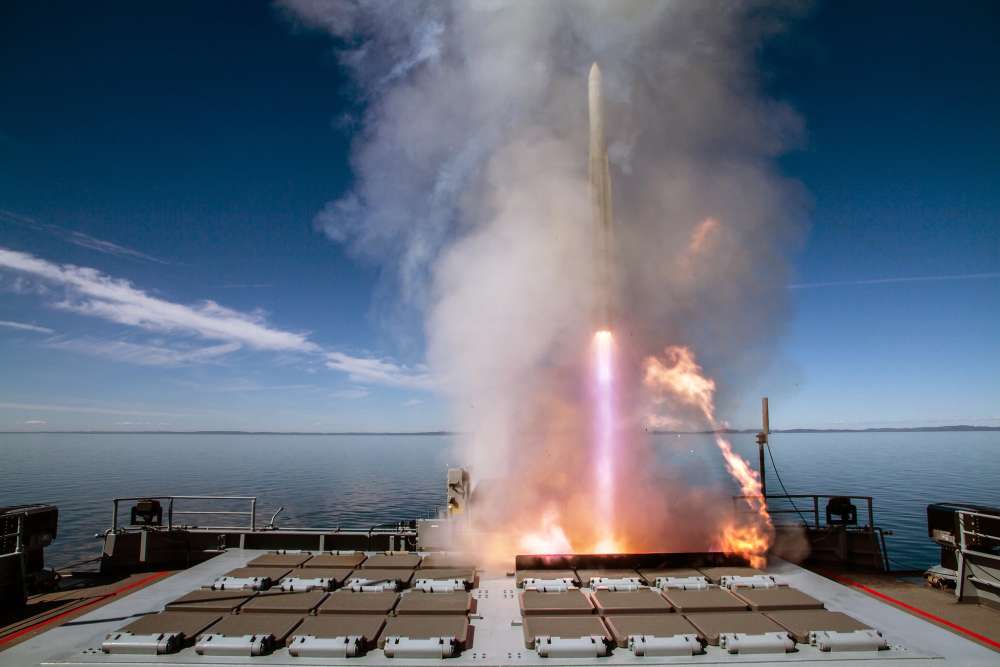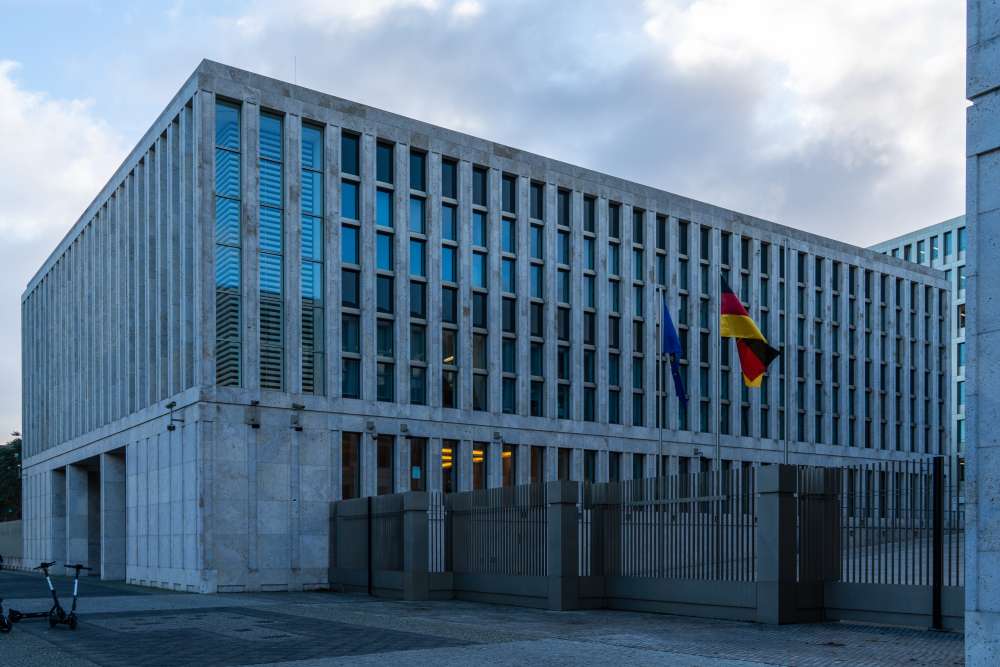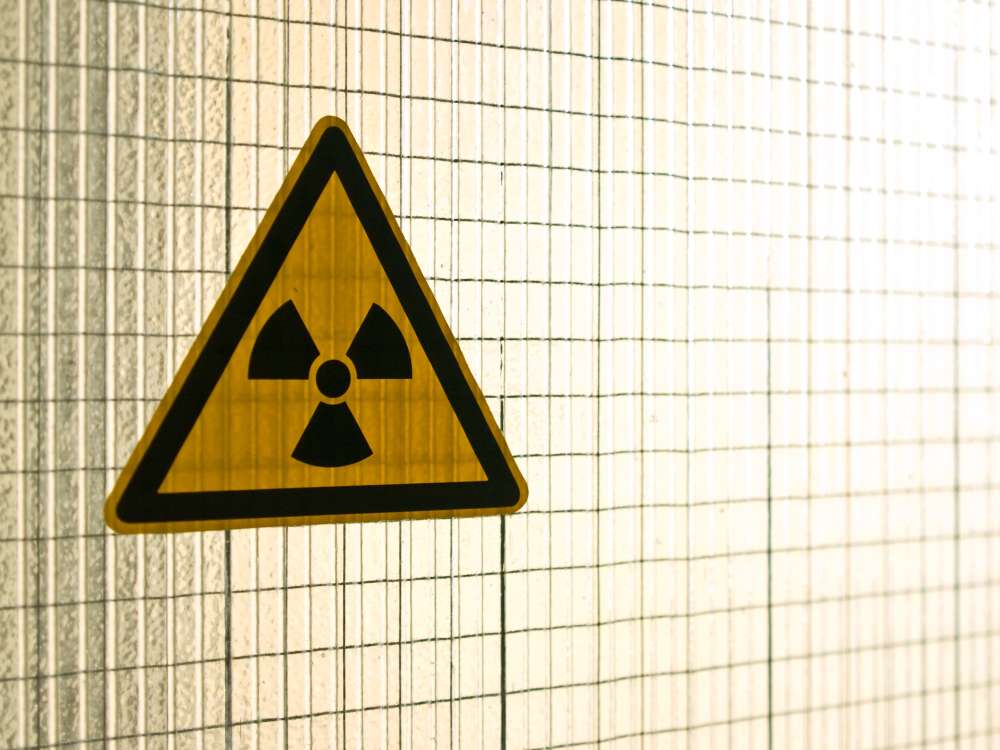Germany Must Adapt Its Mindset on Nuclear Weapons
Russia’s war against Ukraine has stirred Germany’s nuclear debate. Now is the time for Berlin to rethink its nuclear policy – and the National Security Strategy should lay the groundwork.
Over the last months, Russia’s war against Ukraine and its veiled nuclear threats have stirred Germany’s nuclear debate. The post-Cold War years – with the significant reductions in nuclear weapons and a more benign security environment in Europe – lulled Germany into believing that the world had reached a stage in which nuclear weapons no longer played a central role. Calls for disarmament became the name of the game. Despite Germany’s continued reliance on the US nuclear umbrella, questions about nuclear strategy and deterrence did not feature prominently in discussions in the German Parliament or the media.
This has changed with the war in Ukraine and the Kremlin’s nuclear saber-rattling. Since February 2022, there has been constant debate in Berlin and beyond about the war’s nuclear risks, the technicalities behind Russia’s nuclear potential, but also more general questions around nuclear deterrence. Arguably, this perception of a heightened nuclear threat and the reinvigorated attention paid to nuclear issues has paved the way for the long-delayed decision on the Tornado replacement, ensuring Germany’s continued role in NATO’s nuclear sharing. Still, it is high time for Germany to update its broader thinking on a nuclear weapons – for which the National Security Strategy should lay the groundwork. There are three basic considerations regarding nuclear weapons in particular that Germany’s upcoming security strategy should reflect.
Toward a Greater Reliance on Nuclear Weapons
First, Germany’s National Security Strategy should acknowledge that the strategic environment is fundamentally changing, leading to an elevated role of nuclear weapons and less nuclear stability in Europe and beyond. Indeed, while Germany has actively called for a reduced reliance on nuclear weapons from the nuclear-weapon states in their policies and doctrines, the current trend is pointing in the opposite direction.
Russia’s war against Ukraine has not only exposed, but also exacerbated the Kremlin’s conventional weaknesses. Over the past decades, Moscow tried to reduce the role of nuclear weapons in its approach to escalation management by modernizing its conventional strike options and assigning them a more prominent role in its deterrence strategy. However, it always rejected restrictions on its sub-strategic nuclear arsenal. Russia’s dwindling inventory of conventional precision-strike weapons – coupled with its trouble replenishing stocks due to Western sanctions on critical microelectronic components – will likely cause Moscow to rely more on nuclear deterrence and its sub-strategic nuclear arsenal in the years to come. This could result in a lowered nuclear threshold – which would not only further shrink Russia’s appetite for arms control, but could also undermine stability in Europe.
Key Points:
- Germany’s National Security Strategy should acknowledge that the strategic environment is fundamentally changing, leading to an increased role of nuclear weapons and less nuclear stability in Europe and beyond.
- The National Security Strategy should provide the basis for updating Germany’s thinking on arms control, focusing on managing competition in the interest of greater security and stability.
- Germany should commit to investing more military and intellectual capital in sustaining a credible NATO deterrent.
China, on the other hand, is rapidly expanding its nuclear arsenal. After decades of relying on a doctrine of minimum deterrence with an arsenal of around 200 nuclear weapons, China is now in the midst of a significant build-up and diversification of its nuclear forces. While China’s missiles may not pose a direct threat to European security, its nuclear modernization has negative repercussions on Europe as well. In particular, it changes the strategic equation in the Asian Pacific region at the expense of the United States, which will require greater US attention and resources for the Asian theater – leaving less for Europe.
Also in the United States, the nuclear debate is changing. Faced with a revisionist nuclear peer in Europe and a rising nuclear superpower in Asia, there are a growing number of voices in Washington calling for adjustments in the US posture. US Strategic Command is already “furiously rewriting deterrence theory” and pondering the intricacies of tri-polar deterrence, while others demand that the United States “relearn the art of arms racing.” US President Biden’s ambition to reduce the salience of nuclear weapons in the US National Security Strategy has not materialized. And prospects of a follow-on arrangement of the New START treaty – the last arms control treaty restricting the US and Russian arsenals – remain grim: while Moscow and Washington may be able to agree on further restrictions, a new nuclear arms control deal is unlikely to pass in the US Congress unless China is on board.
Thus, in the next years, nuclear security and stability will not improve – not in Europe, and not in any other part of the world. Germany would do well to take stock of these changing realities and revise its thinking and toolbox accordingly.
Arms Control as a Means to an End
This leads to the second point: Germany’s National Security Strategy should provide the basis for updating its thinking on arms control, with a focus on managing competition in the interest of greater security and stability. In Germany, arms control is usually understood as a synonym for disarmament. Both terms are often used interchangeably. Disarmament is seen as an end in itself, based on the assumption that having fewer weapons is always better and would eventually lead to a more peaceful world. However, in a world of accelerating strategic competition with a growing emphasis on nuclear weapons, such a one-sided understanding of arms control leaves Germany ill-prepared to deal with a revisionist Russia and a rising China. Instead of “rethinking arms control” as pursued by Berlin’s last government, a return to the classical approach of arms control would provide a good compass for the way forward.
» In a world of accelerating strategic competition with a growing emphasis on nuclear weapons, such a one-sided understanding of arms control leaves Germany ill-prepared to deal with a revisionist Russia and a rising China. «
Starting in the 1950s and 1960s, US arms control theorists understood arms control as the management of competition involving armaments – not solely their elimination. They defined arms control as “all the forms of military cooperation between potential enemies in the interest of reducing the likelihood of war, its scope and violence if it occurs, and the political and economic costs of being prepared for it.” Arms control was not seen as an end in itself, but as a means to an end – namely, the enhancement of security through stability. Thus, arms control could take various forms of qualitative and quantitative adjustments – potentially including reductions, but also improvements.
Returning to this approach would provide Germany with a more comprehensive and flexible toolbox for its security. In practice, this means that, instead of the “disarmament offensive” called for in the German coalition agreement or blanket bans on certain technologies, the focus in the short-to-medium term should be on arms control instruments that can help manage competition in the interest of greater security and stability.
Reinvigorating Europe’s Deterrence Thinking
Third, Germany should commit to sustaining a credible NATO nuclear deterrent in its upcoming National Security Strategy. As a long-standing mainstay of Germany’s security policy, this should not be a controversial move. And yet, over the past 30 years, Berlin has preferred not to highlight its reliance on the US nuclear umbrella. However, today’s security environment requires Germany to take more initiative and increase its engagement with deterrence.
» It is not enough to put the onus for developing credible, tailored deterrence strategies for European problems on the United States. «
In the next years, Germany and its European allies will likely be forced to grapple with a highly volatile neighbor to the East that relies more on its nuclear arsenal, while Europe’s most important security provider – the United States – will increasingly focus on the Asian theater. Thus, it is not enough to put the onus for developing credible, tailored deterrence strategies for European problems on the United States.
Instead, Germany should make significant investments in its military capabilities and take a proactive role in NATO’s strategic adaptation. However, military burden-sharing should also be complemented with intellectual burden-sharing. To make this a reality, Germany’s commitment to NATO’s deterrence should also include spending more intellectual capital on thinking through escalation management and advancing NATO’s deterrence strategy for a less stable Europe. In particular, Germany should work alongside its European allies to reach a better understanding of the future threat posed by Russia. This also means engaging with the question of how a more robust conventional posture and limited nuclear options can jointly strengthen deterrence vis-à-vis Moscow.
Since the end of the Cold War, Germany has paid precious little attention to questions of nuclear weapons and deterrence. Its upcoming National Security Strategy offers the chance to reverse this trend.
Lydia Wachs
Research Associate, Stiftung Wissenschaft & Politik
Weiterlesen

Make Germany Secure Against Russia
After thirty years of historical reconciliation and special relations, this is an uncomfortable truth – but the primary aim of Germany’s security strategy should be to contain Russia in Europe.

Deutschland als Grundpfeiler europäischer Verteidigung
Der Ostseeraum ist das Brennglas der angespannten Beziehungen zwischen Russland und der NATO. Als koordinierender Verantwortungsträger sollte die Bundeswehr hier Führung übernehmen. Bestens dafür geeignet: Die Deutsche Marine.

„Ruhige Zeiten sind weitgehend ausgeschlossen“
Die Zeitenwende in der Sicherheitspolitik lässt auch die Nachrichtendienste nicht unberührt. Sie sollten dazu befähigt werden, mit neuen Herausforderungen Schritt zu halten. Zentral dafür: gemeinsame Strukturen innerhalb der Bundesregierung.
